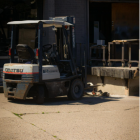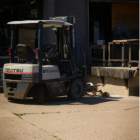In the bustling marketplaces and industrial zones around Sydney, the hum of forklifts is as common a sound as the friendly ‘G’day’ between coworkers. These machines, vital to the operations of countless businesses, are instrumental in lifting the weights of commerce both literally and figuratively. Sydney’s expanding economy often looks beyond its shores to meet the growing demand for skilled forklift operators, mechanics, and logistics personnel, tapping into the global labor pool by bringing in migrant workers.
The conversation around the protections for these valued migrant workers in Australia’s labor market is a critical one. Recent discussions led by prominent union figures highlight the importance of ensuring that workers brought in to fill skill shortages are treated fairly and are not subject to exploitation. It’s a topic that touches on the ethical fabric of our society and underscores why businesses, including those in the forklift industry, must lead by example.
When considering forklift hire in Sydney or engaging services for forklift repairs and forklift servicing, it is essential to choose a provider that maintains high standards of workplace fairness and ethics. Migrant workers are often the backbone of these services, bringing with them a wealth of knowledge and expertise. They contribute to the diversity and skills of the workforce, enabling companies to deliver high-quality services to their customers.
Customers, when choosing a service provider for essential tasks such as forklift hire Sydney or forklift servicing Sydney, should consider the labor practices of the companies they do business with. Ethical labor practices aren’t just about compliance with regulations; they reflect a company’s commitment to fairness and the well-being of its employees. Customers indirectly support these values when they select socially responsible businesses for their needs.
The robust dialogue on worker protections and union involvement ensures that migrant labor rights are safeguarded, and it also benefits customers in several ways. Knowing that the technicians servicing your forklifts or the operators managing the heavy machinery are treated well can give peace of mind. It is also associated with a higher level of service quality – content and valued employees generally equal fewer mistakes, better customer service, and overall improved outcomes for the client.
Our industry, which includes a suite of offerings such as diesel forklift and electric forklift hire, stands at an interesting crossroads where technology meets manpower. The choice between a diesel forklift vs electric forklift, for instance, is no longer just about power and efficiency; it’s also about the sustainable and ethical profile of the machines and the businesses that provide them. We see a future where forklift companies are not only providers of services but also leading proponents of the best labor practices.
Furthermore, it is becoming increasingly important for forklift businesses to engage with unions and worker representatives to establish fair working conditions that include appropriate wages, schedules that respect work-life balance, and opportunities for skill development and advancement. When customers look into hiring a Toyota forklift, for example, they should know that the company behind the machine is as reliable and ethical in its labor practices as they are in the maintenance of their fleet.
Ultimately, choosing a forklift service provider that values its workforce and engages in ethical labor practices benefits everyone involved. It translates to reliable, well-maintained equipment, highly skilled service, and societal benefits that come from supporting a company that is an active participant in the movement towards better labor protection.
As Australia continues to refine its migration policies and practices, companies in the forklift industry have an opportunity to set a strong example. By upholding high standards for worker protection and showing that it’s possible to balance the need for talent with the imperative of fair treatment, businesses can contribute positively to the national dialogue on migrant labor. After all, a commitment to quality and fairness shines through in every aspect of business, from the first customer interaction to the smooth operation of a forklift on the warehouse floor.




